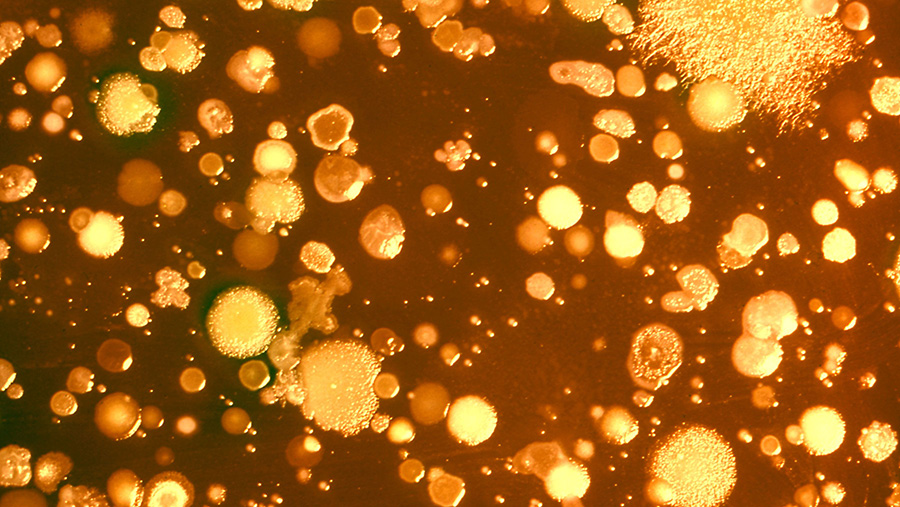Tough anthrax rules causing ‘hardship’ for livestock farmers
 © Media for Medical/UIG/Rex/Shutterstock
© Media for Medical/UIG/Rex/Shutterstock Stringent rules to protect UK exports to China following an anthrax outbreak last autumn have resulted in a two-tier trade in livestock.
It follows a case of anthrax which was confirmed following the death of a cow on a farm in the Westbury area of Wiltshire last October.
It was the first incident of anthrax in livestock since 2006.
See also: Anthrax confirmed on farm in Wiltshire
Although an isolated outbreak, the case has had repercussions for other producers who must now declare their livestock are not from the affected area when selling animals.
Anthrax is an acute bacterial disease which infects cattle, pigs, horses, sheep, humans and some species of birds. Most forms of the disease are lethal.
Following the Wiltshire outbreak, livestock producers must complete a declaration form stating that animals being sold have not come from affected parishes.
The anthrax-free declaration is for livestock movements within the UK and is not an export certificate – but it aims to support the export of hides and animal skins to China.
Cornish farmer Martin Howlett said some producers in south-west England had “big issues” when it came to filling in the declaration form.
NFU livestock board chairman Charles Sercombe said the anthrax outbreak had caused great concern among farmers and exporters.
Mr Sercombe said he expected the requirement for farmers to fill in declaration forms would remain in place until mid- to late April – six months after the last outbreak.
“It has caused a great deal of hardship for some producers and their stock has been devalued which is incredibly disappointing”
Charles Sercombe, NFU
“There is great nervousness in the processing industry and within Defra about the implications for trade – in particular with China because they are the ones taking these skins.”
Officials were keen to stress that absolutely robust processes were in place to ensure that no potentially infected animals went into the skin trade, said Mr Sercombe.
“It has caused a great deal of hardship for some producers and their stock has been devalued which is incredibly disappointing.”
But it was important for the UK to abide by the terms of trade agreed with China if that trade was to be protected for the future.
